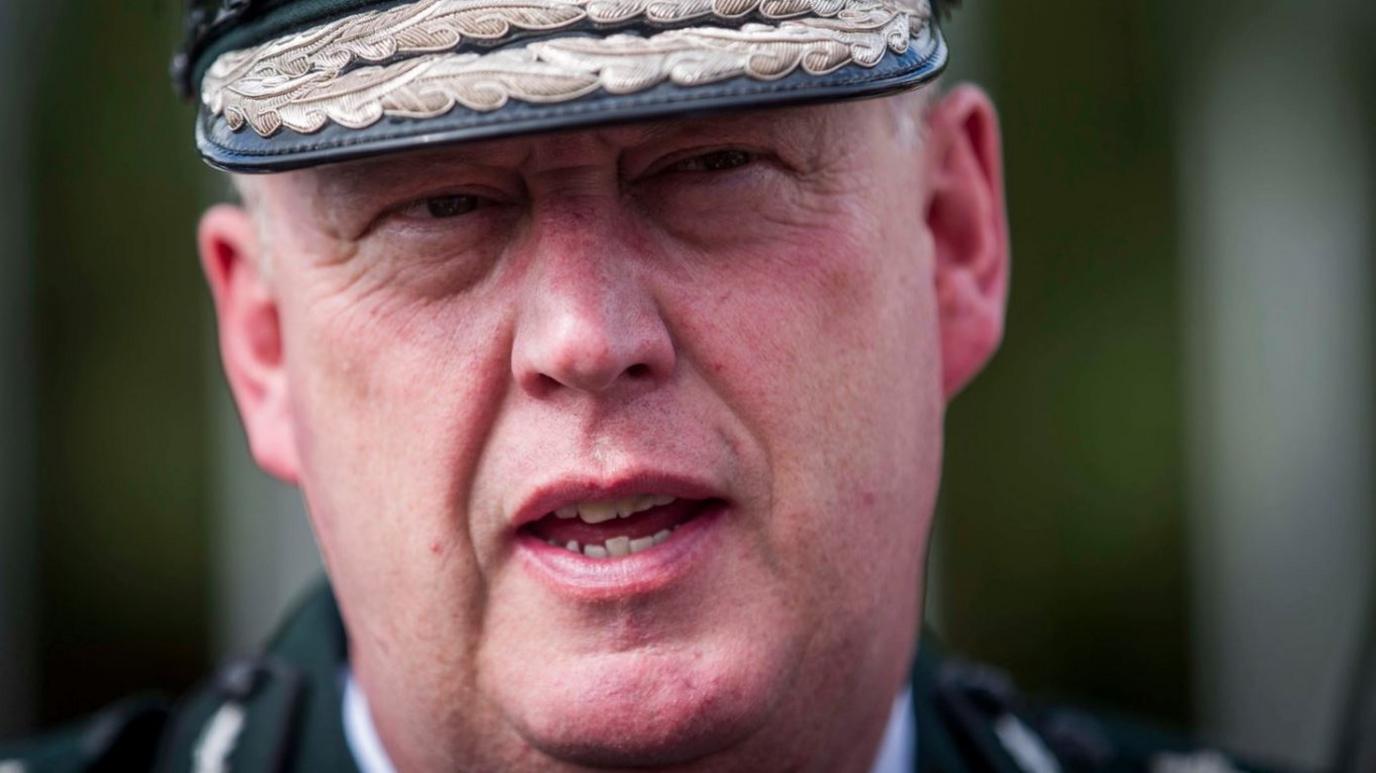Police union highlights 'low morale' among officers
- Published
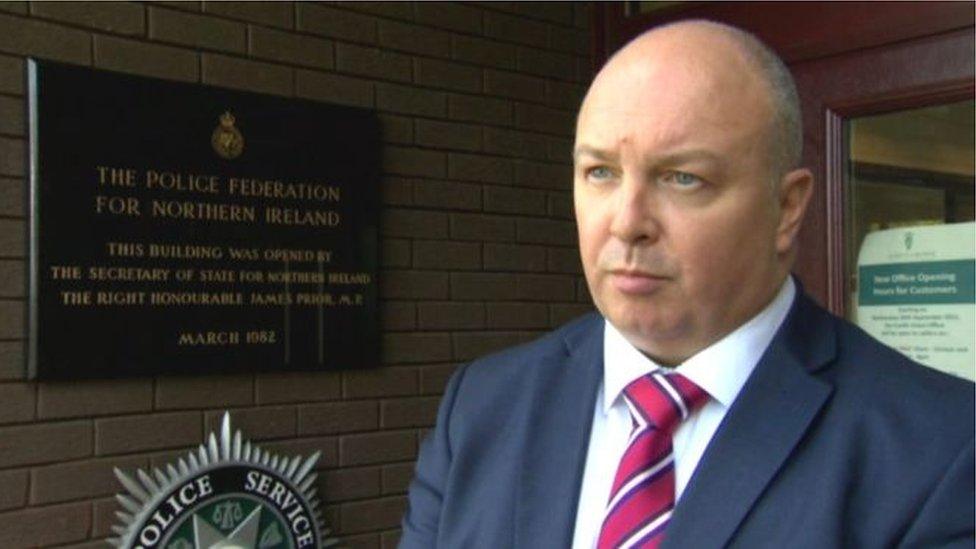
Mark Lindsay is chairman of the Police Federation for Northern Ireland
The chairman of the Police Federation for NI (PFNI) has revealed a survey of its members found 92% believed that morale across the PSNI was low.
Mark Lindsay also said more than 80% of respondents had "reported not having enough officers to manage all the demands made on them as a team".
Addressing the federation's annual conference on Wednesday, he described the feedback as "disturbing".
The PFNI represents rank and file officers in Northern Ireland.
"There are consequences when people have to consistently work under such unrelenting pressures, with the very real threat of punitive disciplinary action being taken if and when they get it wrong," Mr Lindsay said.
"In any other organisation or enterprise, this would set alarm bells ringing.
"Yet, for some inexplicable reason, the silence is deafening in some government departments."
'Under stress'
The federation's survey was taken by 37% of its members, of which there are about 6,600.
Simon Byrne was appointed as the new chief constable of the PSNI (Police Service of Northern Ireland) in May, and will take up his position some time after George Hamilton retires this month.
Mr Lindsay said "urgent investment" was required in the organisation.
It follows his comments earlier this week that budget cuts to the police service were an issue.
"We will see more officers under stress and reporting sick," he said.
"More being injured on duty and more leaving for less demanding jobs."
'Challenges'
PSNI Chief Constable George Hamilton said the force recognised "the challenges to wellbeing and morale" highlighted in the survey.
"Along with our own staff surveys we are acutely aware of the issues and challenges faced by our own people," he said.
Mr Hamilton added the PSNI would continue to work with the PFNI and "our other staff associations to improve this situation, establish the causal factors and address those issues which are within our control".
"Significant investment has been made in our wellbeing and support services for officers and staff, including the recruitment of 20 specialist professionals to help in supporting our people, and this will continue to be a top priority for the PSNI moving forward."
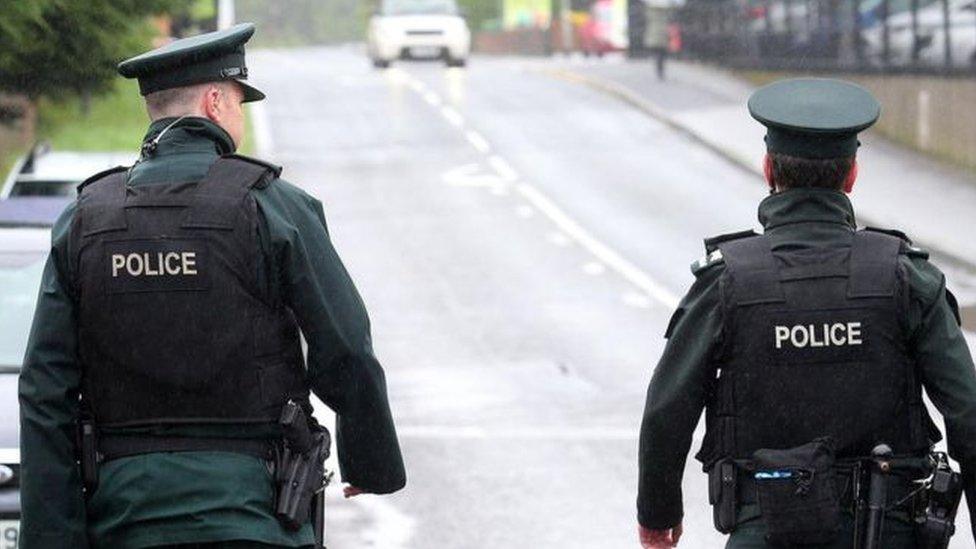
The Police Federation represents rank and file officers in Northern Ireland
Northern Ireland's devolved government collapsed two-and-a-half years ago, after a bitter split in the power-sharing coalition led by the Democratic Unionist Party (DUP) and Sinn Féin.
Talks are continuing involving Northern Ireland's political leaders and British and Irish ministers aimed at restoring devolution.
'Megaphone voices'
Mr Lindsay urged politicians to settle their differences in a "restored" Stormont assembly and executive.
He said it was time "to end shrill megaphone voices for what passes as local political engagement".
"We have no programme for government," he said.
"No-one to fight our corner for increased numbers and adequate resources.
"The job of repairing fences and getting back to legislating and running Northern Ireland should trump all else.
"If politicians are to rebuild public trust and confidence, then they will have to move from narrow, sectional demands and instead consider the greater societal good."
Mr Lindsay said proposed legislation on legacy institutions in relation to the Troubles "is flawed and in need of radical review".
"It is perverse to set up institutions which will seek to investigate retired officers, whilst we have already agreed to release terrorists from prison, grant pardons and issue comfort letters," he added.
The consultation lasted five months and more than 17,000 responses were received.
Mr Lindsay also called for tougher sentences from the courts for people found guilty of assaulting officers.
- Published3 June 2019
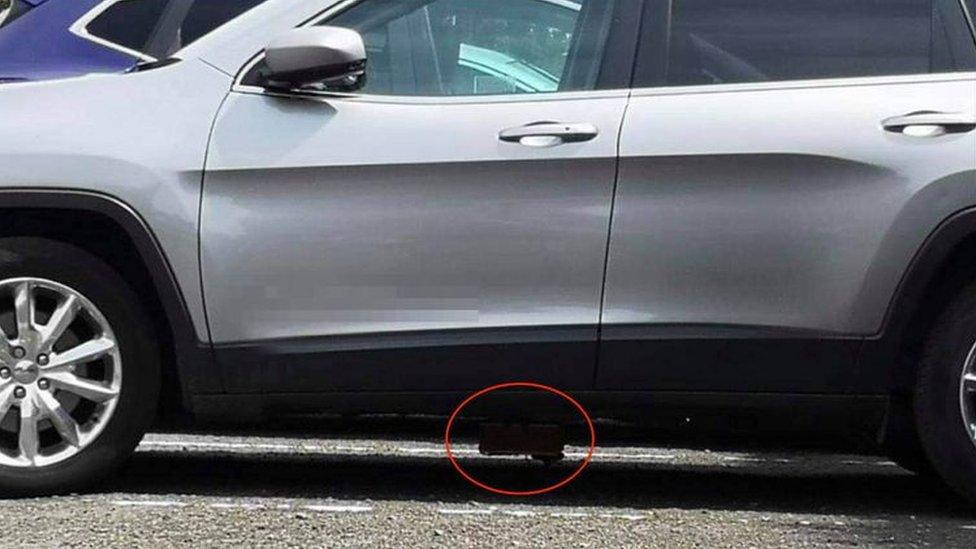
- Published25 May 2019
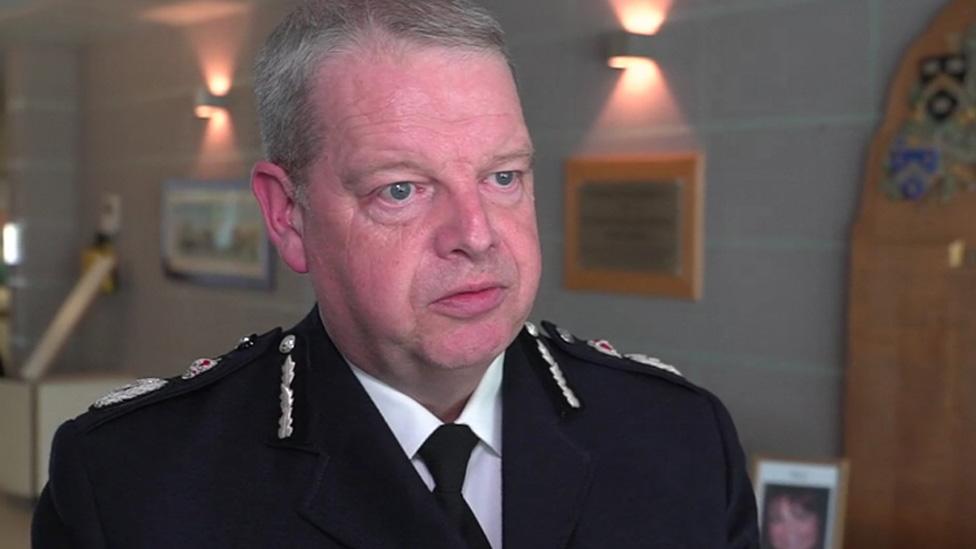
- Published3 March 2019
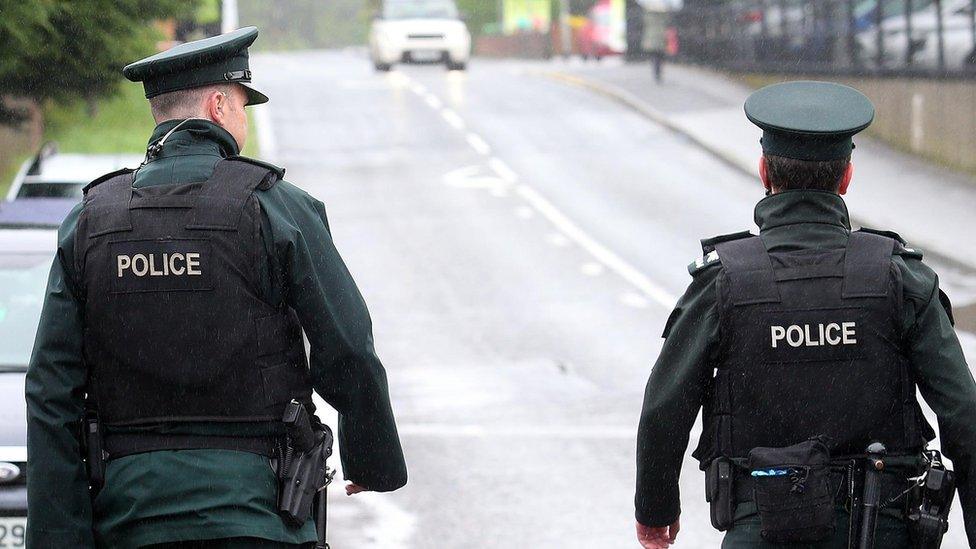
- Published28 January 2019
